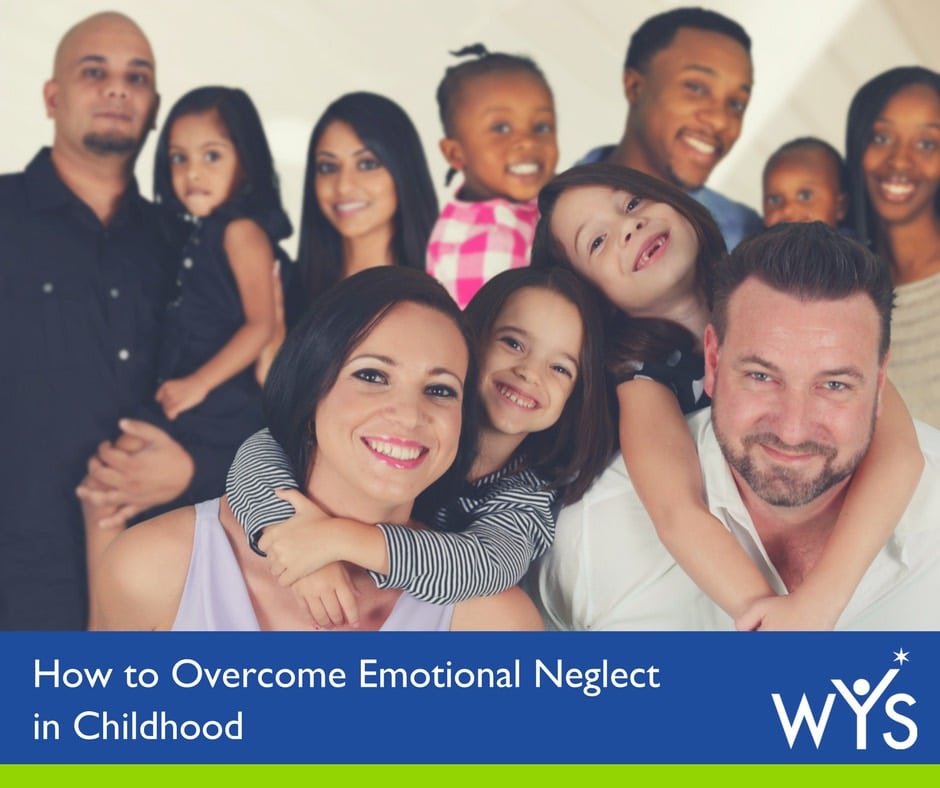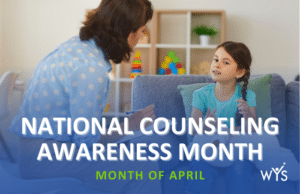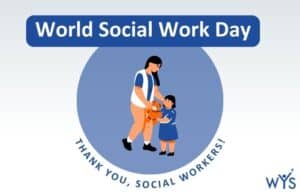
How to Overcome Emotional Neglect in Childhood
Family relationships are complex and there are a wide range of issues that fall under the label of family dysfunction. Most people associate it with big events, such as witnessing domestic violence, living through divorce or separation of a parent/caregiver, addictive behaviors, domestic abuse, and/or mental health concerns within a family. There are also adversities that may seem small or even go unnoticed in children and youth. They may cause traumatic stress that can lead to depression and/or anxiety, which if left unattended, negatively impact a person for life.
Emotional Neglect in Childhood
In this article, we are going to focus on childhood emotional neglect. This is a risk factor that we see too often in our work at Western Youth Services. It is important to bring awareness in hope that we can help families heal.
Children who are physically abused may show scars and bruises. It may not be the case with children who are emotionally abused. Their scars are invisible and are easy to overlook. They can show up in other ways such as a change in eating or sleeping patterns, withdrawal, loss of interest in activities, failing grades or missing school altogether. These are signs that something is amiss and help is needed.
Often times, the external behaviors, such as disrupting class, are treated as discipline problems, which adds to the confusion for the child or adolescent. They may be having a normal reaction to abnormal circumstances and misunderstood for their behavior. They are hurting in silence.
How Emotional Neglect Correlates to Adverse Childhood Experiences
Childhood emotional neglect is one of the types of Adverse Childhood Experiences or ACEs as identified in the ground-breaking ACE Study which was conducted by the Center for Disease Control (CDC) and Kaiser Permanente in 1998. You can find more information on the ACEs Too High website and in our special report Health and Hopeful: Healing Trauma.
An ACE score is determined by taking the ACE Study which includes questions about 10 types of childhood trauma. Five are personal: physical abuse, verbal abuse, sexual abuse, physical neglect, and emotional neglect. Five are related to other family members: an alcoholic or drug abusing parent, witnessing domestic violence, an incarcerated family member, mental illness in the family, and divorce or feelings of abandonment. Each type of trauma counts as one point. For example, a person who was physically abused, has an alcoholic parent, and a family member with mental illness has an ACE score of three.
Unrecognized and untreated early childhood trauma carries over into adulthood. This can manifest into a lifetime of physical and mental health concerns. One in five children has a diagnosable mental health condition. In the majority of cases, the early signs of mental illness occur at the age of 18 or younger.
Emotional neglect can show up in many forms. Maybe a child is ignored or spoken to harshly by a family member. Perhaps a parent, sets expectations that are unattainable or puts their own needs first. They may be working long hours and the child is overburdened with household responsibilities. When this behavior happens repeatedly, the child may feel self-doubt and dismissive of his/her own needs.
Emotional neglect is often an intergenerational pattern. Parents and caregivers do what they know and often recreate the relationship they had with their parents/caregivers. When we work with families, we strive to break the negative patterns so they do not continue on to the next generation. The overall emotional health of the family is focused on and healing can occur.
Heal Emotional Neglect with Resiliency and Self-Compassion

It is possible for children and youth to overcome emotional neglect. There are a few key elements to assisting with the healing process:
- Awareness: we all need to keep a watchful eye on children and teens. Notice sudden changes in behavior or demeanor.
- Words have an impact: use them with care and compassion.
- Cultivate patience: it may take time, changing habits and patterns is hard work. Be kind to yourself and your family members. Remember to be compassionate and do your best to understand how the other person feels.
- Be open to learning: there are a number of personal growth opportunities on the healing journey. Always look for the silver lining.
- Build resiliency: every time you overcome an adverse experience you build resiliency. As you grow the layers of resiliency, you are actually preparing yourself and your family to handle future difficult situations with less stress and anxiety.
- Get help: from a mental health professional, as this can be a complex family situation.
Meet Melissa

Meet one of our clients, Melissa. Her story provides an example of the healing process that is possible. Ten-year-old Melissa was struggling in school. She had high levels of anxiety that led to regular meltdowns. She was unable to focus on her school work and did not want to go to school.
Melissa began to see a Western Youth Services (WYS) therapist in school who learned through their discussions that Melissa’s mom, a single parent, would often turn to Melissa to ask for help in making adult decisions related to household finances. Unknown to her mother, this was very stressful for Melissa.
The therapist at school recommended that Melissa’s mom meet with another WYS therapist for a series of therapy sessions to help her better manage the complex decisions that she juggles alone as a single parent.
The primary therapist continued to work with Melissa on building her confidence through creativity (one of her strengths). Her mom applied some of the new parenting techniques that she was learning to their relationship. Through the collaborative partnership of all involved, Melissa grew and learned more about her feelings. Her crying episodes, negative self-talk, and unhappiness she had been experiencing subsided. She is now more imaginative in her solutions, has started to make new friends, her grades have improved, and her self-esteem has grown. She recently won an award for perfect school attendance.
Melissa has successfully completed therapy, she is happier, more independent in school, and her relationship with her mother improved. Her mom is seeing an individual therapist to continue to support and maintain the progress that she and her daughter have made and prepare them with the necessary tools to make sound future decisions.
Get to know more of our client’s and learn about their stories of healing.






